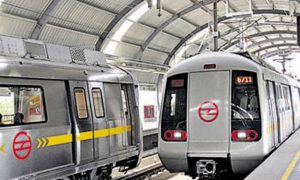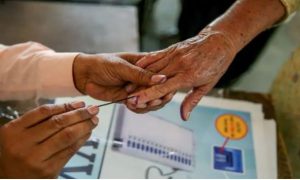BSNL’s losses in 2019-20 stood at Rs 15,500 crore, which halved to Rs 7,441 crore in 2020-21
Even as the government has approved the Rs 1.64-lakh-crore revival package for BSNL, the results in the improvement in the company are expected to be visible in the next two years. The package will be in the form of both cash and non-cash components. BSNL has faced profitability issues apart from operational and debt issues. Here’s what’s the issue and what steps the government has taken so far for its revival:
Read More: HDFC Bank Sets Up 2-Day Window for NRE Deposits; Offers Higher Interest Rates
What Are the Problems With BSNL?
Bharat Sanchar Nigam Limited (BSNL) has constantly been targeted for making losses. BSNL’s losses in 2019-20 stood at Rs 15,500 crore, which halved to Rs 7,441 crore in 2020-21 after a revival package in 2019. Minister of State for Communications Devusinh Chauhan has informed that BSNL suffered a loss of Rs 50,631 crore in the past five years.
The state-owned telecom company now has a debt of Rs 33,000 crore. However, the debt is way less as compared with its private sector peers like Vodafone and Airtel. As on March 31, 2022, Vodafone’s total debt (including interest accrued but not due) was Rs 1,97,878.2 crore and the company had around Rs 8,160 crore of payments due over the next 12 month.
Airtel’s net debt (excluding lease liability) of Rs 1,23,500 crore saw limited reduction due to Indus Towers’ stake acquisition and AGR (adjusted gross revenue) interest capitalisation.
Also, BSNL does not have 4G connectivity on an all-India basis. The telco was expected to complete its 4G rollout in 2020. However, the government cancelled the 4G tender for BSNL in 2020. Now, the government on Wednesday (July 27) said BSNL will be allotted spectrum in 900/1800 MHz band administratively at the cost of Rs 44,993 crore through equity infusion, to improve existing services and provide 4G services.
Read More: Tata Motors and Indian Bank partner to roll out car loan offers
What Steps Has Govt Taken So Far To Address Issues?
In 2019, the government had proposed a plan to merge Bharat Sanchar Nigam Ltd (BSNL) and Mahanagar Telephone Nigam Limited (MTNL), to revive both the state-owned companies that were reeling under losses. The government also aimed a Rs 38,000-crore asset monetisation programme, issuance of Rs 15,000 crore sovereign bonds and implementing a voluntary retirement scheme (VRS) for employees of BSNL and MTNL.
Then telecom minister Ravi Shankar Prasad had said the government, along with the other requisite measures, will also infuse Rs 29,937 crore for the revival of BSNL and MTNL.
As a result of the revival plan, BSNL’s Ebitda (operating profit) turned positive in 2020-21.
Now, within three years, the government has again announced a revival package for further turning around BSNL. Apart from over Rs 40,000 crore cash support, the government said the administrative allocation of spectrum for 4G and 5G services for BSNL has also been given go-ahead, apart from approving its infrastructure expansion and upgrade. After the implementation of the revival package, BSNL will be able to expand 4G services to raise ARPU (average revenue per user) to Rs 170-180.
Telecom Minister Ashwini Vaishnaw said the package will be given in a staggered manner, spreading over four years. However, 70 per cent of the support will be extended within 1-2 years. The telecom minister said the result will be visible within the next two years and BSNL will roll out 4G services.
However, the government has deferred the BSNL-MTNL merger due to financial reasons that include the high debt of MTNL. However, it has approved the merger of BSNL and Bharat Broadband Network Limited (BBNL).





































